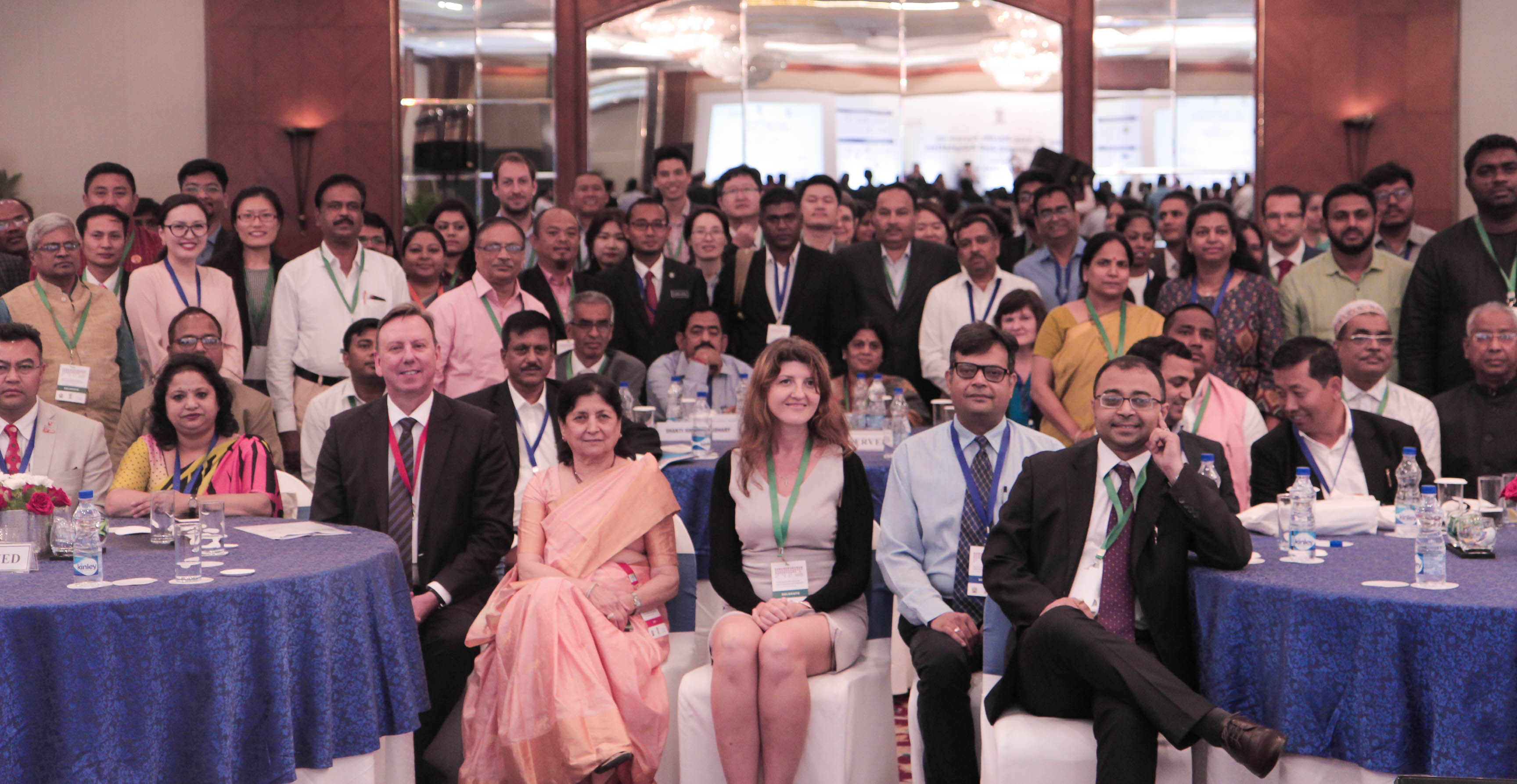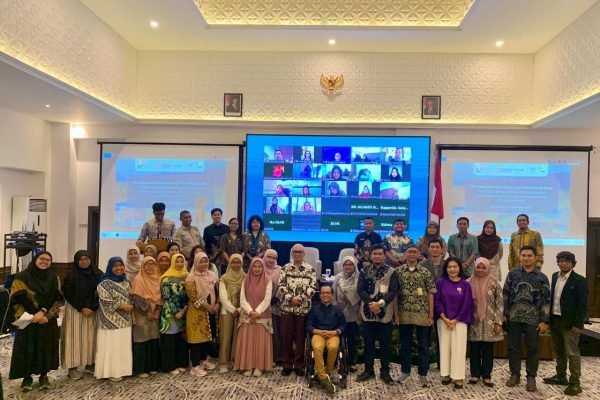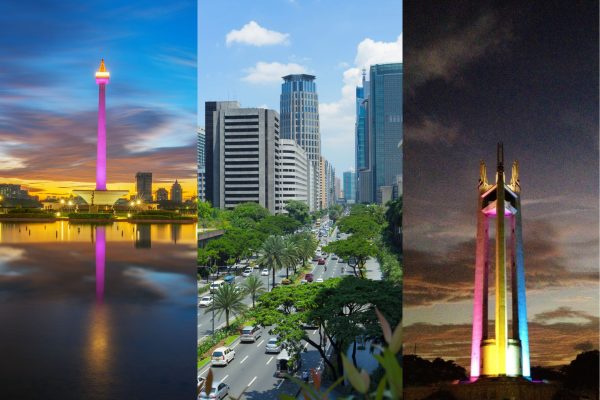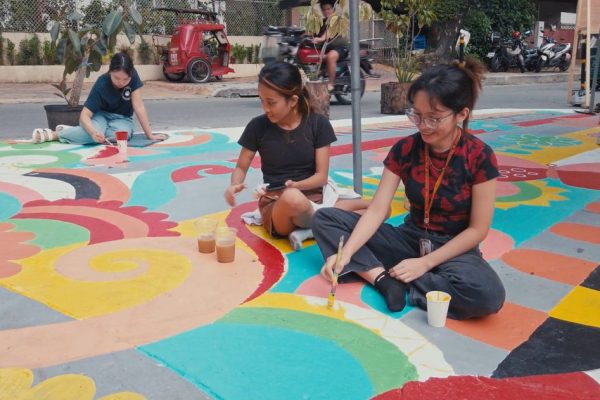City representatives from Southeast Asia actively participated in the recently concluded 4th Resilient Cities Asia Pacific (RCAP) Congress which took place in New Delhi, India from 15-17 April 2019. The event brought together over 200 participants from 70 cities and 25 countries to discuss urban resilience, low emission development, participatory governance, green infrastructure, and other related topics over eight plenary sessions and seven parallel sessions.
SEA city representatives during the event included San Fernando, La Union (SFLU); Zamboanga City; and Calapan, Oriental Mindoro from the Philippines; Chiang Mai, Thailand; as well as Alor Gaja and Huang Tuah Jaya, Melaka in Malaysia. Bicol State College of Applied Sciences and Technology (BISCAST), an academic institution in the Philippines also participated in the Congress.
This year’s RCAP zeroed in on implementation highlights, challenges, and opportunities for urban resilience at the local level in relation to various global frameworks and agreements including the Sustainable Development Goals (SDG), New Urban Agenda (NUA) 2016, and the Nationally Determined Contributions (NDCs) of Asia-Pacific countries. The Congress outcomes will be presented during the NDC Conference in Berlin, Germany as well as during the Resilient Cities Congress in Bonn, Germany. Both events will take place in June 2019.
The Vice President of India Shri M. Venkaiah Naidu graced the inaugural session and reiterated the need to strive for multi-dimensional and innovative approaches to promote resilience and low emission development.
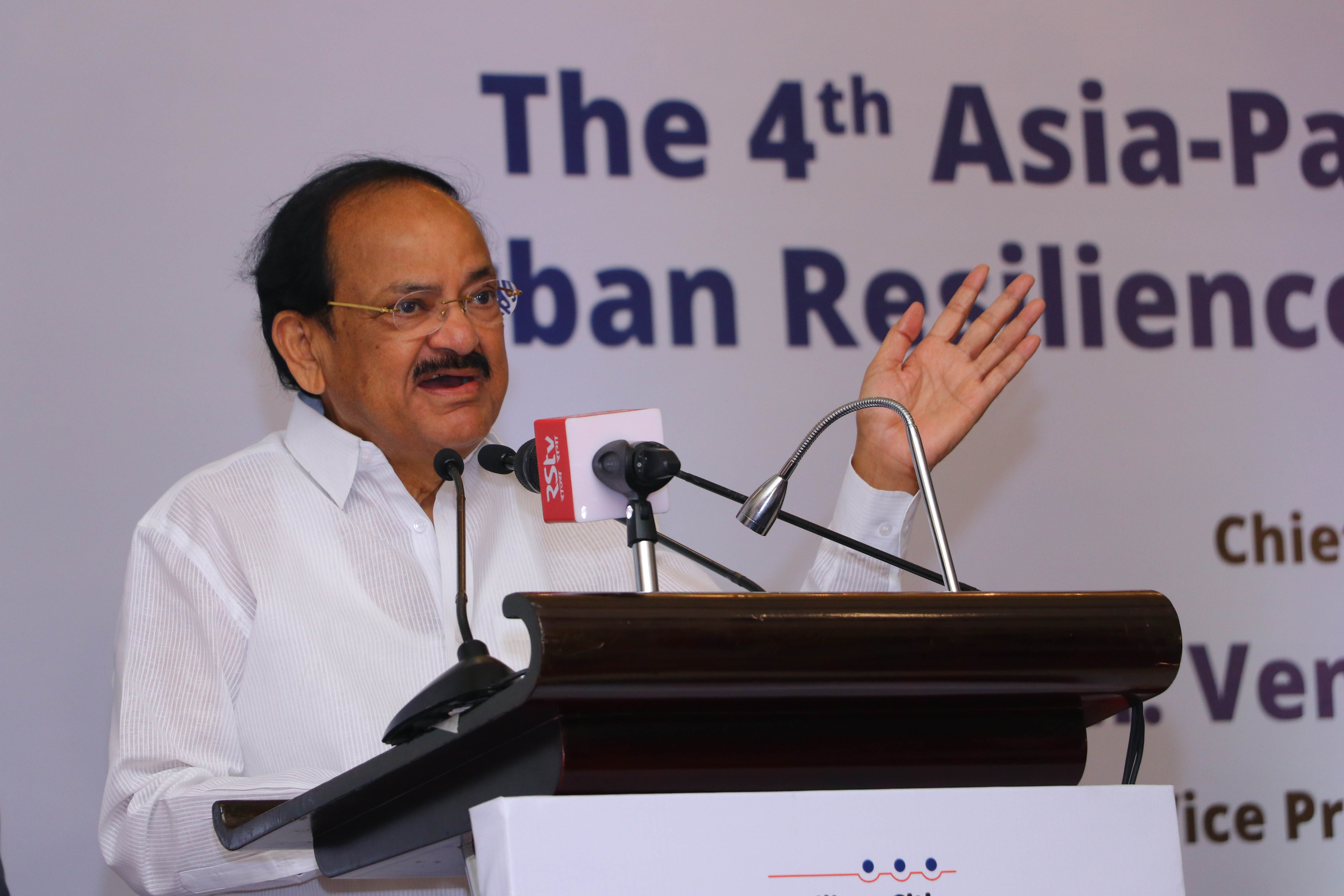
Vice President of India Shri M. Venkaiah Naidu called for collaborative and innovative solutions to promote resilience and low emission development.
“We need to change our development paradigm and aim for climate resilient development, moving away from traditional metrics of measuring development. The new urban infrastructure should be low-carbon, green and climate resilient,” he said.
Mr. Gino van Begin, ICLEI Secretary General likewise stated, “With the Paris agreement in place as well as through the 2030 Agenda for Sustainable Development and the SDGs, local and regional governments have now a central role as partners to nations to achieve the targets set by the international community. They can set their own complementary commitments to make cities inclusive, safe, resilient, and sustainable.”
ICLEI South Asia Secretariat took the helm of this event, in partnership with the South Delhi Municipal Corporation and with support from other ICLEI offices including Southeast Asia, East Asia, Oceania, Africa, South America, and the World Secretariat.
Towards adaptive and ecosystem-based water management plans at the local level
Ms. Katherine Muller from the City Environment and Natural Resources Office of SFLU in the Philippines discussed climate adaptive water management. She shared her city’s strategies toward integrated water management including programs on promoting rainwater harvesting and improved sanitation practices for water-deprived areas.
The session focused on climate-induced challenges to water resource management and the collaborative approaches for integrated water management particularly demand-led strategies for managing water shortages and other challenges. Speakers and panelists also delved on the decision support tools and management frameworks that cities can build on in planning for integrated water management.
Mainstreaming sustainable urban development through the nexus approach
This session highlighted the lessons and insights gleaned from the implementation of the Integrated Resource Management in Asian Cities: The Urban Nexus project, commissioned by the German Federal Ministry for Economic Cooperation and Development (BMZ) and implemented by GIZ in cooperation with ICLEI and the United Nations Economic and Social Commission for Asia and the Pacific (UNESCAP).
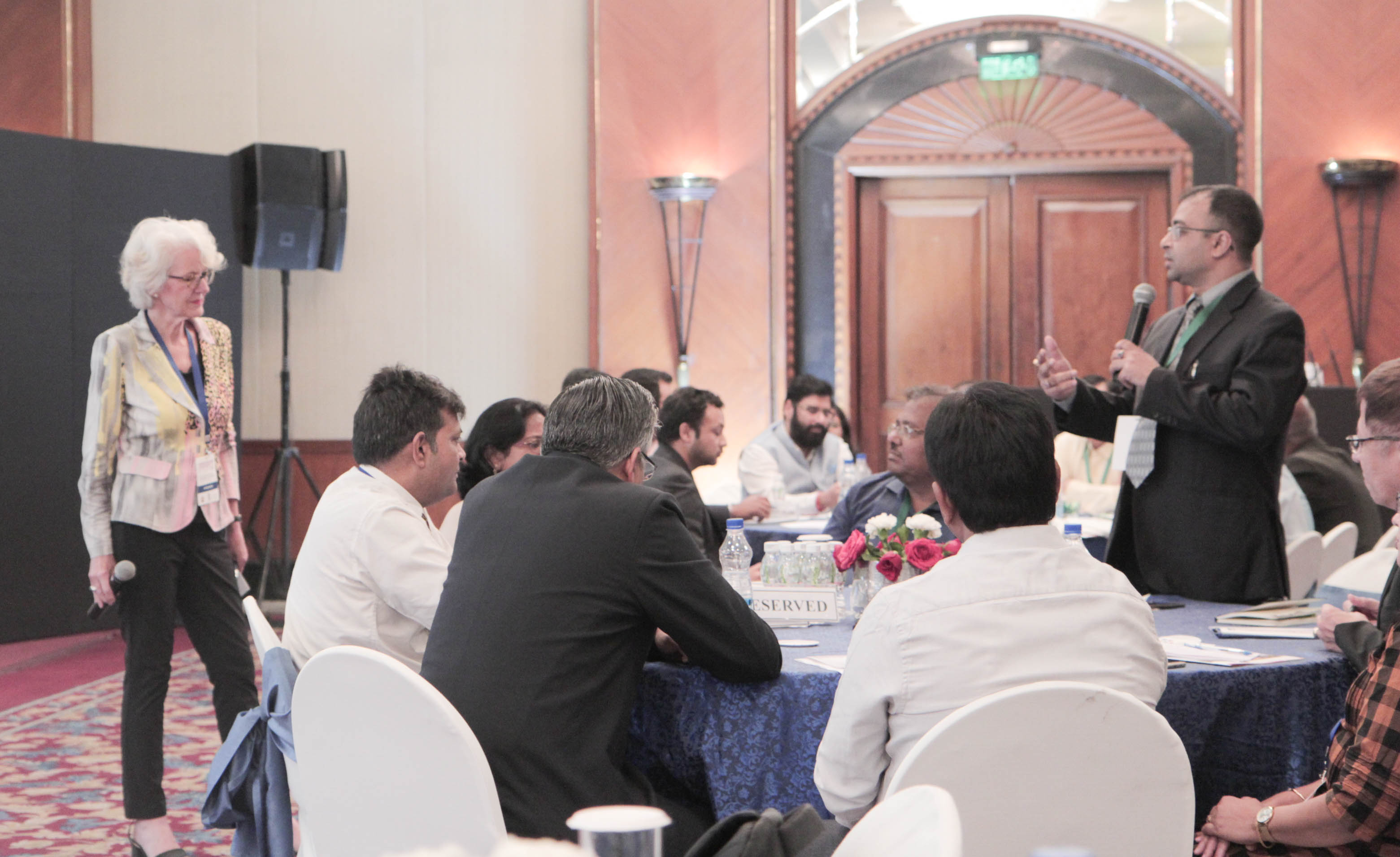
Ms. Ruth Erlbeck, Project Director of the Urban Nexus served as the facilitator and moderator of this session.
Dr. Richard Cordial, President of BISCAST, shared his insights and experiences that they have gained as the project’s pioneer academic partner. He noted that BISCAST, as an educational institution, is now offering tertiary courses on the nexus of water, energy, and the built environment. A proof-of-concept pilot project showcasing a climate-resilient house has been completed by BISCAST and is now ready for scaling up.
Underscoring the significance of collaborative action on urban pressures, Dr. Cordial stated, “[While] we cannot break down silos, we have to be connected and grouped; strive to work together and put our collective minds toward solving problems. ”
Promoting investable climate action planning
Mr. Muhammad Shahrul Hafdiz bin Ab. Rahim, Deputy Mayor of Huang Tuah Jaya, Municipal Corporation represented Malaysia in the session that focused on sustainable urban planning practices to develop climate-related bankable projects at the local level.
The session featured experiences from city members of the Global Platforms for Sustainable Cities (GPSC), a World Bank-led forum that facilitates knowledge exchange and partnership to achieve urban sustainability. Other GSPC cities that participated in the session included Vijayawada, Jaipur, and Mysore all located in India.
The session’s core outcome was a call for stronger, more inclusive urban resilience strategies that are bankable, realistic, and feasible. Panelists agreed that pilot projects can be implemented as proof of concept samples and if successful, these projects can be replicated at a wider scope or scaled up to address larger problems.
Towards resilient development in the Asia Pacific region: The New Delhi Call
The congress’ last day saw the launch of the New Delhi Call. Mr. Sunandan Tiwari, Senior Program Manager, Global Projects and Director of Global Implementation of the ICLEI World Secretariat and Ms. Ingrid Coetzee, Senior Manager of the ICLEI Cities Biodiversity Centre in ICLEI Africa led the call’s deliberations.
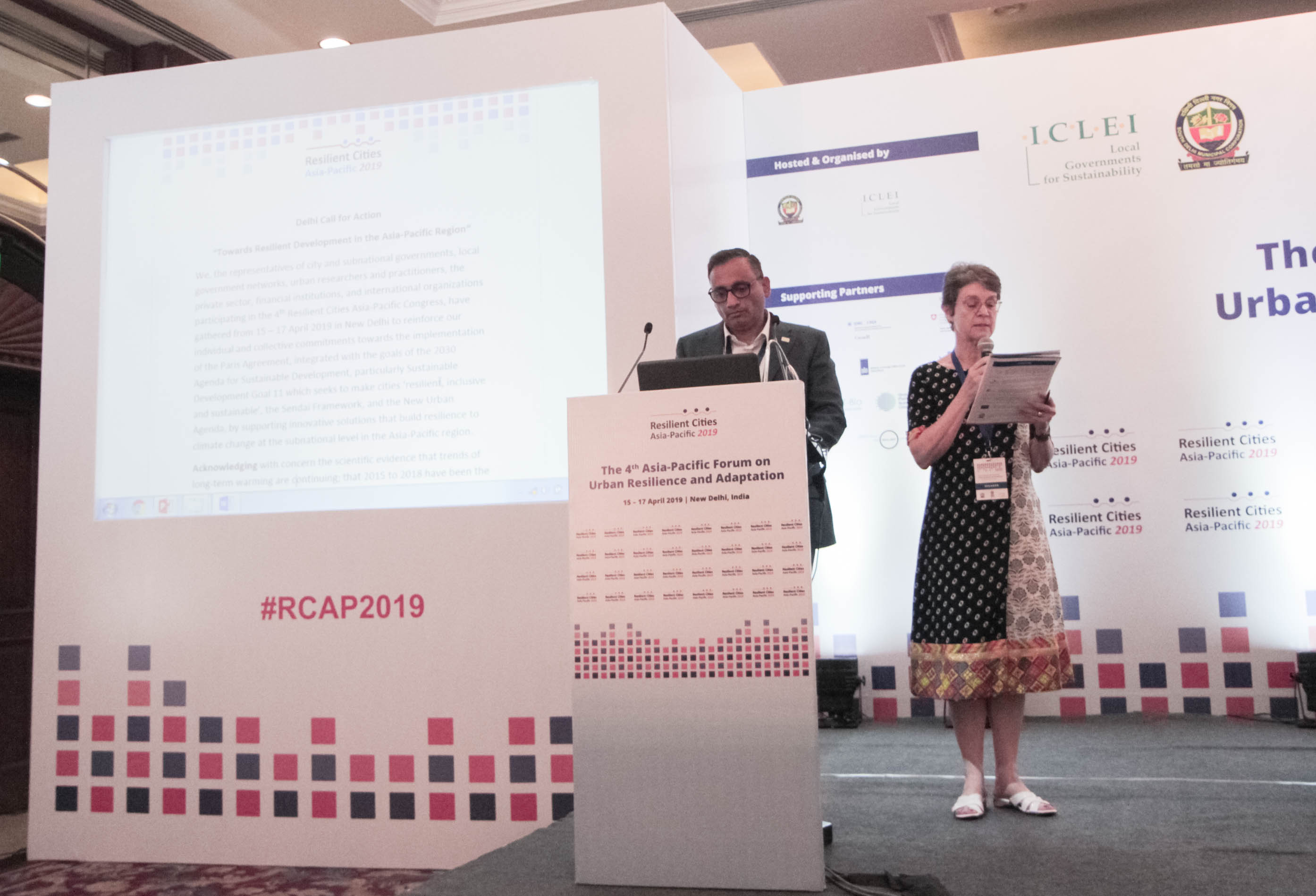
The deliberations of the New Delhi Call provided a platform for congress participants to suggest improvements on the text. The document now available on the RCAP 2019 website.
The New Delhi Call reinforces commitments towards the implementation of the Paris Agreement, integrated with the SDGs and NUA. It also lobbies for innovative and effective solutions that build resilience to climate change at the local and subnational level. The document also called for strengthening and supporting the role of local governments in building resilience with a focus on urban planning, finance, and inclusive development.
The closing ceremony was led by Mr. Randhir Sahay, Additional Commissioner, South Delhi Municipal Corporation. Ending the three-day event with a note of optimism and camaraderie, Mr. Sahay stated, “The forum has set a strong stage for bold and ambitious statements and actions towards sustainability. We are excited to announce the New Delhi Call and its Commitments. I request and hope that each of us will strive for climate resilient actions in our homes and in our cities.”
The Resilient Cities is the annual global platform for urban resilience and climate change adaptation convened by ICLEI – Local Governments for Sustainability and co-hosted by the World Mayors Council on Climate Change and the City of Bonn. It was launched in 2010.
Since 2015, the Congress expanded in response to heightened demand from Asia Pacific local governments to bring the event and the focus to the said region; catering to the situation, challenges, and opportunities in this part of the world. To this end, RCAP provides an Asian platform to discuss urban resilience and climate change adaptation where partnerships are forged and concrete dialogues are happening, with the ultimate goal of identifying solutions and creating lasting impacts for local governments in the region.
For more information about the ICLEI Resilient Cities Congress in Bonn, please click here.
For more information about the Resilient Cities Asia-Pacific, please click here.

